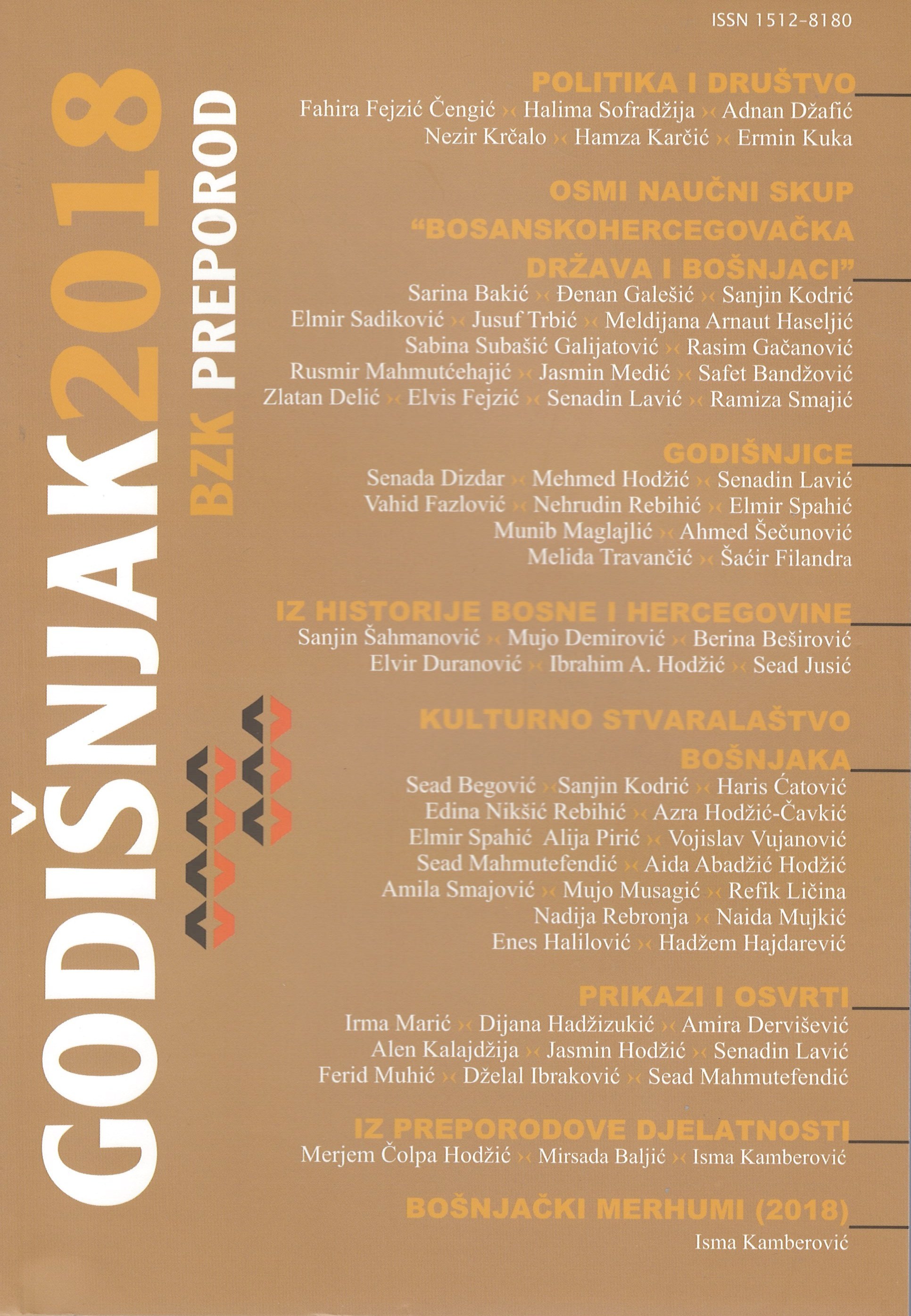Bosanskohercegovačka heteronomija
BOSNIAN-HERZEGOVINIAN HETERONOMY
Author(s): Adnan Džafić, Nezir KrčaloSubject(s): Politics / Political Sciences, Political Theory
Published by: Bošnjačka zajednica kulture "Preporod"
Keywords: ideology; Bosnian-Herzegovinian society; social actors; heteronomy;
Summary/Abstract: The state of the contemporary Bosnian society and its development can not be inferred from a perspective that takes into account only the time since the introduction of parliamentary democracy and the first multilateral elections. Various ideologized positions tend to give their versions of the development and nature of the Bosnian-Herzegovinian society and their starting point is generally denied for the understanding of a part of Bosnia-Herzegovinian history and social actors important for the Bosnian-Herzegovinian society in this historical period. The contemporary age, characterized as the time of the end of ideology, can be described as a collection of a multitude of ideologies overlapping a global ideology of neoliberal capitalism, freedom of movement, freedom of choice, and freedom of opportunity. All other ideologies, the dominant operational ideology of nationalism, are fighting for the souls of everyone and the souls of all. The wind in the back gives them a state of the heteronomy of a Bosnian-Herzegovinian society characterized by at least four elements: 1.) the constitutional foundations and social norms include foreign citizens and international institutions that restrict the sovereignty of the state; 2.) Affiliated nationalist ideological programs in neighboring countries, instrumentally and target-oriented to their electorate and their own „general goals“; 3.) part of civil society organizations formed by international actors, which should represent a corrective for the failure of state institutions to function, and in practice go hand in hand with the previous two elements; 4.) Citizens who, by their inexperience in electoral and other political activities, leave the above-mentioned elements of heteronomy to impose norms on the whole of Bosnia-Herzegovina from the „outside“.
Journal: Godišnjak Bošnjačke zajednice kulture »Preporod«
- Issue Year: 2018
- Issue No: 1
- Page Range: 37-48
- Page Count: 12
- Language: Bosnian

